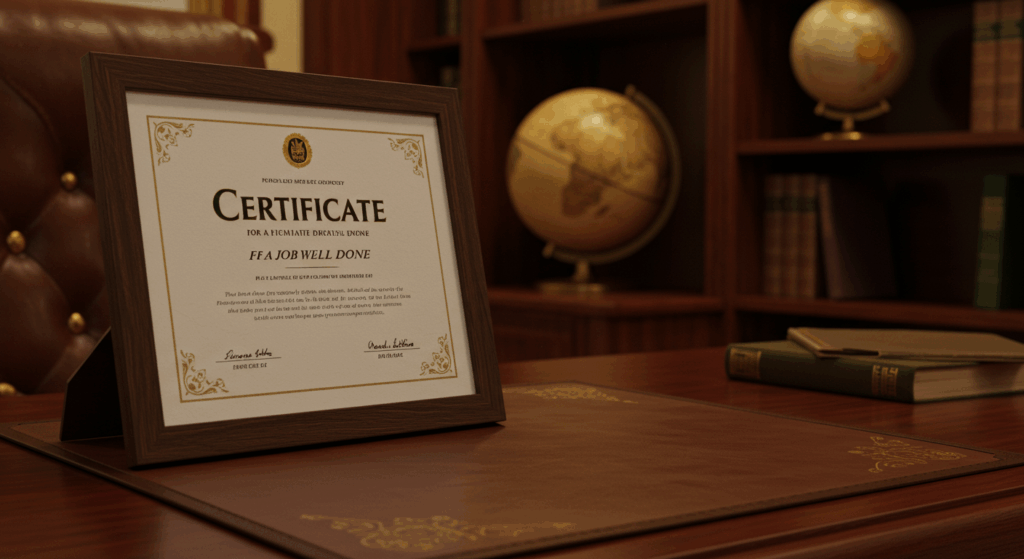Alright, so let’s be real for a sec. Life is basically a never-ending series of problems. Some are tiny—like Netflix asking if you’re still watching (um, obviously yes, Netflix, stop judging me). Others are massive—like trying to figure out how to pay rent, land a job, or deal with a messy situationship that’s more confusing than a group project with zero communication.
The good news? Problem-solving is actually a skill you can get better at. Yep, it’s not just some magical talent that a few brainiacs are born with. You can Level Up Your Skills and actually train your brain to handle problems faster, smarter, and without spiraling into stress-eating an entire family-size bag of chips (been there).
So, let’s talk about how to improve problem-solving in a way that’s relatable, practical, and maybe even a little fun.
Why Problem-Solving Is Basically Your Life Hack Superpower
Think about it. Every single part of adulting requires some type of problem-solving. Work projects? Problem-solving. Figuring out how to split the bill at dinner when someone “forgot” their wallet? Problem-solving. Even playing video games—yep, your brain is practicing problem-solving when you’re trying to beat that ridiculously hard level in Elden Ring.
The cooler part? When you get good at solving problems, your whole vibe changes. You start feeling more confident, less stressed, and people actually trust you more because you’re not the friend who panics when stuff goes wrong—you’re the one with ideas.
It’s like becoming that person in the group chat who everyone texts when their laptop breaks or when they need advice about a weird text from their crush.
Some Tricks that Actually Work
First, Slow Down Before You Freak Out
Okay, so you’ve got a problem. First instinct? Panic. But here’s the thing: freaking out rarely makes anything better (unless you count burning through group chat memes as therapy).
The first real step in problem-solving is literally just… breathe. Slow down. Give your brain time to catch up before your emotions take over
Fisrt Step Tricks that Actually Work:
- The 5-Second Rule (not the one about dropping food on the floor, lol). Count slowly to five before reacting. It helps reset your brain.
- Journaling it out. Write the problem on paper. Sometimes seeing it outside your head makes it feel less like a monster and more like a puzzle.
- Step away. Go walk, shower, or doomscroll TikTok for a few minutes. The brain is sneaky—it often finds answers when you’re not forcing it.
Break the Big Mess Into Smaller Pieces
Huge problems are intimidating, like staring at your laundry pile after three weeks of ignoring it. But if you break it down—one shirt, one pair of socks at a time—it’s actually manageable.
Same goes for problem-solving. Instead of thinking, “How do I fix my entire life?” (spoiler: you can’t do that in one night), ask smaller questions:
- What’s the exact issue?
- What are the parts I can control?
- What tiny step can I take today?
Suddenly, it feels less like climbing Mount Everest in flip-flops and more like taking a casual hike.
Get Creative (a.k.a. Don’t Be Afraid of Weird Ideas)
Here’s the thing: sometimes the best solutions sound dumb at first. Like, who thought of putting wheels on shoes and inventing Heelys? Or making a career out of streaming yourself playing video games?
When you’re brainstorming solutions, don’t self-edit too early. Let your brain throw spaghetti at the wall. Write down even the wild ideas. Sometimes the “bad” ideas spark the genius ones.
And ngl, creativity is like a muscle. The more you let yourself explore weird, random, “what if” thoughts, the more flexible your problem-solving skills get.
Pro tip: if you’re stuck, ask yourself, “How would a 5-year-old solve this?” You might be surprised at the simple brilliance of thinking outside the boring adult box.
Use Logic and Gut Instinct
Some problems need cold hard logic. (Like figuring out your budget so you can still afford avocado toast and pay rent.) Others need gut instinct, like whether you should text your ex back (spoiler: usually no).
The key is knowing when to lean into each.
- Logic = facts, numbers, checklists, pros/cons lists.
- Gut = your inner compass, vibes, past experiences, intuition.
When you combine both, you’re basically Batman—smart and instinctive.
Learn to Ask for Help Without Feeling Dumb
Here’s a fact: nobody solves everything alone. Not even your super-productive coworker who somehow runs 5 miles before work and still answers Slack messages at 8 a.m. (seriously, how?).
Asking for help isn’t weakness. It’s actually one of the most powerful problem-solving moves. Whether it’s advice from a mentor, talking things out with a friend, or even Googling “how to fix my Wi-Fi at 2 a.m.,” you’re just gathering more tools.
And honestly? People like helping. It makes them feel useful and connected. So don’t let pride keep you stuck.
Train Your Brain Like It’s at the Gym
Want to Level Up Your Skills? Treat problem-solving like a workout. The more you practice, the stronger your brain gets.
Some easy “exercises”:
- Play puzzle games or strategy games. (Yes, even Wordle counts.)
- Try learning new things—coding, chess, even cooking. Each one builds your flexible thinking.
- Do brain dumps: write a random problem and come up with 10 possible solutions. Doesn’t matter if they’re good or bad—it’s reps for your creativity muscle.
Over time, your brain gets faster at spotting patterns and connecting dots.
Don’t Fear Failure (It’s Basically Free Lessons)
Real talk: you will fail at solving problems sometimes. You’ll pick the wrong option, waste time, maybe even embarrass yourself. And that’s okay.
Failure isn’t the end—it’s feedback. Every time you mess up, you’re collecting data for the next try. Think of it like leveling up in a video game: you die a bunch, but each time you get further because you know more.
If you can shift your mindset from “I failed” to “I learned,” you’ll bounce back way quicker. And you’ll look less like someone sulking over spilled milk and more like someone plotting their next big move.
Surround Yourself With Problem-Solving Energy
You know how being around certain people makes you feel drained, and others hype you up? Same goes for problem-solving.
Hang out with people who inspire you, who think differently, who challenge your assumptions. It rubs off. Suddenly, you’re picking up their tricks and applying them to your own life.
Even stuff like podcasts, books, or follwing cool creators online can shift your perspective. Expose your brain to new ideas—it’s like opening extra tabs in your mental browser.
Practice Emotional Control (a.k.a. Don’t Let Stress Be the Boss)
Here’s the sneaky part of problem-solving nobody talks about: emotions can sabotage logic. Stress, anger, or anxiety can make even simple decisions feel impossible.
So yeah, leveling up your emotional regulation is key. Try mindfulness apps, journaling, workouts, or just screaming into a pillow if needed. The calmer your headspace, the clearer your problem-solving game.
Level Up Your Skills, Level Up Your Life
At the end of the day, improving problem-solving isn’t just about being “smarter.” It’s about being calmer, more confident, and more adaptable. It’s about knowing you can handle whatever curveballs life throws—whether that’s work drama, relationship chaos, or your car deciding not to start on Monday morning.
And the more you Level Up Your Skills, the less scary problems feel. They stop being these massive walls and start looking more like puzzles you can actually figure out.
Final Takeaway: You Got This
If you’re still reading this, then congrats—you already care enough about your growth to want to improve. That’s step one, and honestly, it’s the hardest.
The rest? It’s practice. Little by little, problem by problem, you’ll get sharper. So next time life throws you something messy, remember: pause, break it down, brainstorm, ask for help, and don’t freak out if it takes a few tries.
You don’t have to be perfect. You just have to keep going.
So go out there, test your brain, challenge yourself, and hey—maybe even treat yourself when you solve something tough. You earned it.
Now, seriously—what problem are you going to tackle first?









